Coronavirus: 'Act like tourists' plea to help post-lockdown Edinburgh
- Published
- comments
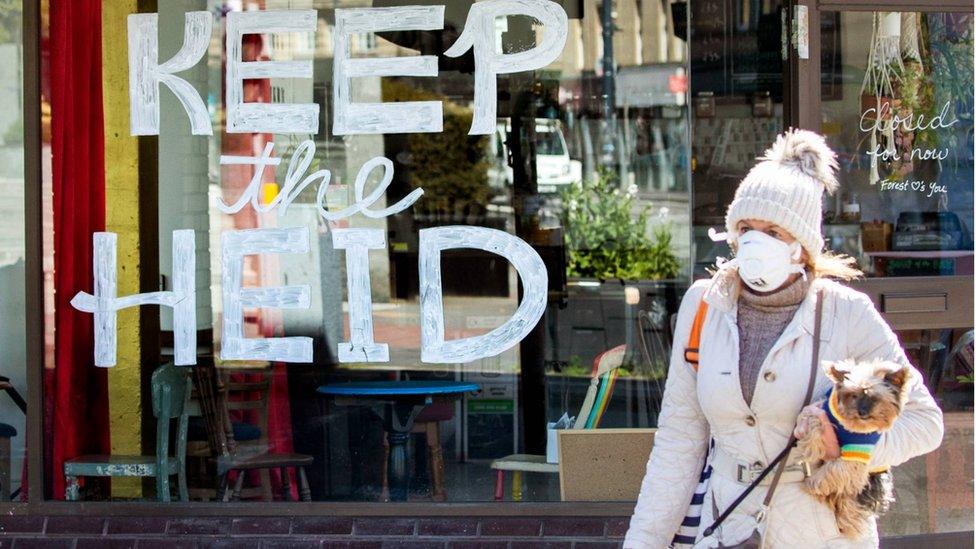
Business leaders have called on Edinburgh residents to behave like tourists in their own city to boost the economy after lockdown is lifted.
They say the city centre has been like a "ghost town" since pubs, restaurants, hotels and shops closed in late March.
Even when they reopen in the later phases of the lockdown recovery plan, there is unlikely to be the influx of tourists so many businesses depend on.
Tourism chief Donald Emslie said people would have to "face reality".
"The city centre will evolve slowly after the lockdown is lifted, it will take a lot longer than anticipated," the chairman of the Edinburgh Tourism Action Group added.
The pandemic has led to the cancellation of the Edinburgh Festival and it is expected to affect the number of college and university students arriving in the city after the summer.
"Edinburgh will open up for locals first, so we want to encourage them to be a tourist in their own city," Mr Emslie said.
"We want to encourage locals to visit unexplored parts of Edinburgh, and that in turn will encourage businesses to reopen."
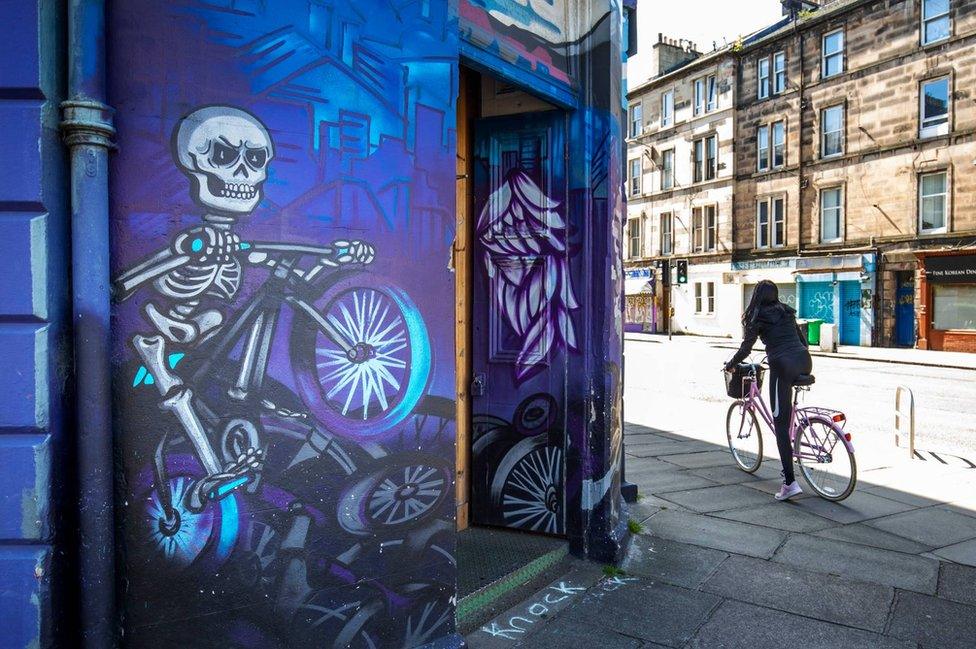
A survey by the Federation of Small Businesses (FSB) of 150 of its members in Edinburgh found that 53% closed during lockdown.
About 40% of firms were unsure if they would be able to trade again and 2% said they would definitely not be reopening.
Garry Clark, the FSB's development manager for the east of Scotland, said Edinburgh's city centre would look like "nothing we have seen" after the lockdown was lifted.
"I think it will be a very different place this summer and autumn depending on how quickly we get through the phases," he said.
Free parking idea
Mr Clark said the city centre was primarily a tourist destination and was "not geared up for local people".
He said: "It's going to be a challenge for Edinburgh centre businesses without tourists, students or office workers.
"We want to try to open up as soon as we can.
"I think we will see businesses being creative with new ideas and business models so they can do things differently. They will be innovative and some will work and some won't."
He said companies would need help through measures like free city centre parking in the initial stages to help get staff and customers back into the area.

How will the lockdown restrictions be lifted?
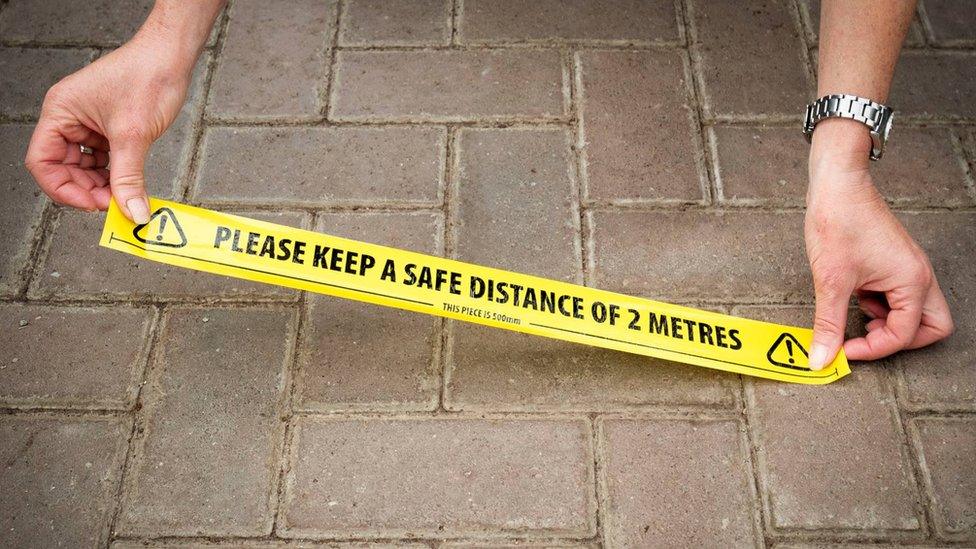
The Scottish government has identified four phases for easing the lockdown restrictions, external, with no fixed dates for the different steps.
The country entered phase one on Friday, allowing the resumption of some outdoor activities and enabling garden centres and drive-through takeaways to reopen.
However, people are being urged not to travel more than five miles for recreation and exercise, and are being told not to gather at tourist hotspots.
It is expected that small retail units and outdoor markets will be allowed to reopen in phase two, and that pubs and restaurants can open outdoor spaces.
They will not be allowed to open indoor spaces - with physical distancing measures - until phase three, which is when larger retail outlets will also be allowed to reopen.
Non-essential offices could also reopen in phase three, along with gyms, museums, libraries, cinemas, hairdressers and dentists. Restrictions on hotels, B&Bs and holiday homes will also be relaxed.
All types of shops and food and drink outlets will be able to reopen in phase four, when the virus is no longer considered to be a significant threat to public health.

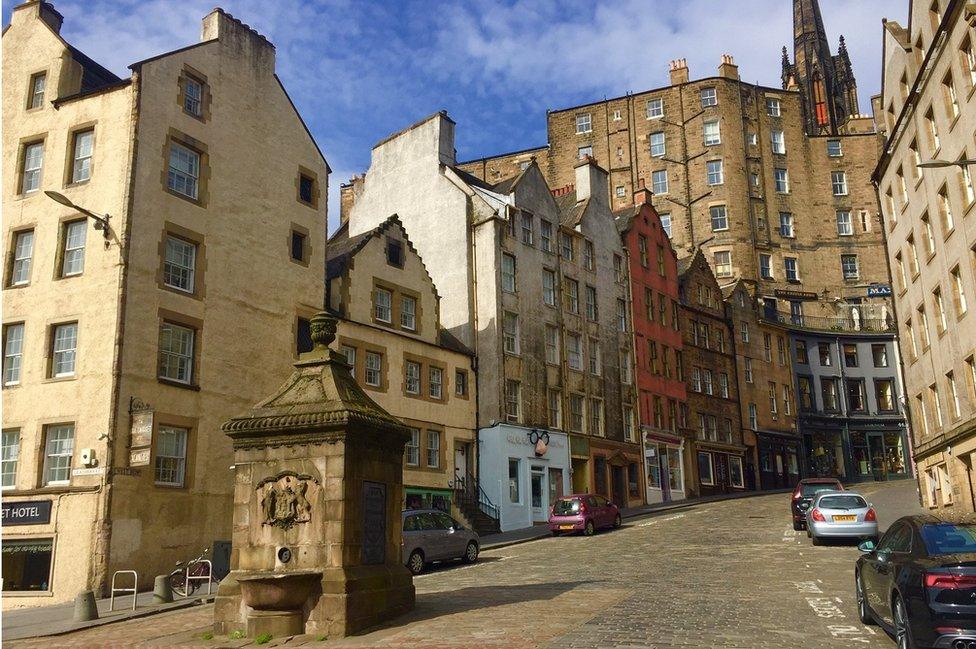
Victoria Street is normally a very busy shopping street
Roddy Smith is chief executive of Essential Edinburgh, which has a membership of 600 large business owners.
The organisation was set up more than a decade ago to support city centre businesses and market the area as a world-class business, retail and tourism destination.
Mr Smith said they would initially attempt to fill the void left by a lack of international visitors by trying to attract people on staycation trips.
"When we are open in a meaningful way the residents will come back," he said.
"We will concentrate on residents first.
"Businesses are in survival mode and they will work exceptionally hard to get through as best they can."
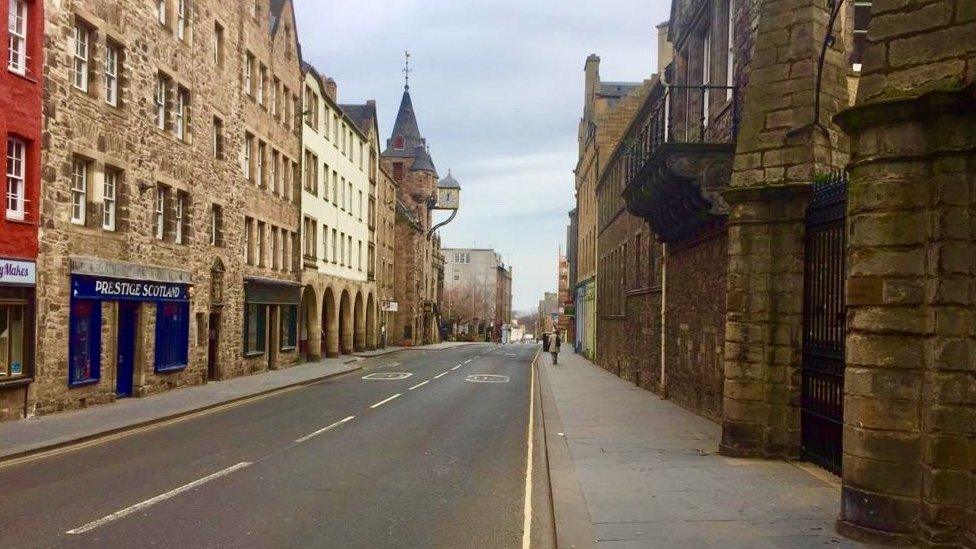
Shops in the the Royal Mile will initially rely on locals when they reopen after the lockdown
Galab Singh is a senior director and partner of the Gold Brothers, which owns 25 shops in Edinburgh city centre - including several tourist souvenir businesses on the Royal Mile. The company employs 500 staff in high season.
He said: "Having been born and bred in Edinburgh and visited the Old Town very nearly every day since I was a young boy, I could never have imagined the Royal Mile being the ghost town I've seen these past weeks and months.
"Our company should have been gearing up for a full on summer season ahead, but things are very different now.
"There is no back to normal, we all have to work together and toward the 'new normal' and positively shape what that's going to look like.
"The impact is enormous and the business community is nervous, some more nervous than others."
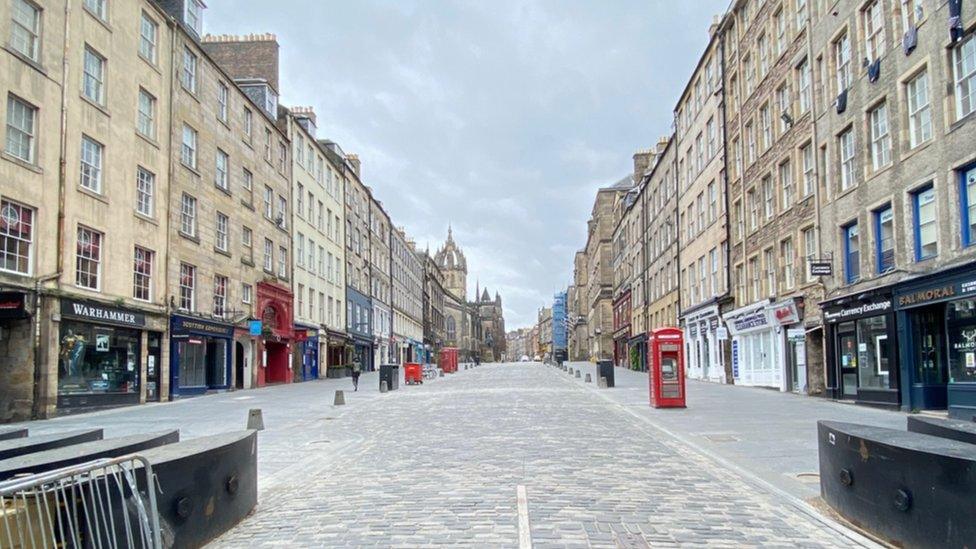
He said the company was taking steps like installing protection at sales counters and providing facial protection, gloves and sanitisation.
"We will be reviewing our retail offer and being fluid toward the trends and product desires of our future visitors," he added.
While pubs and restaurants will be able to open outdoor areas, like beer gardens, in phase two of the government's routemap, indoor spaces must remain closed until phase three.
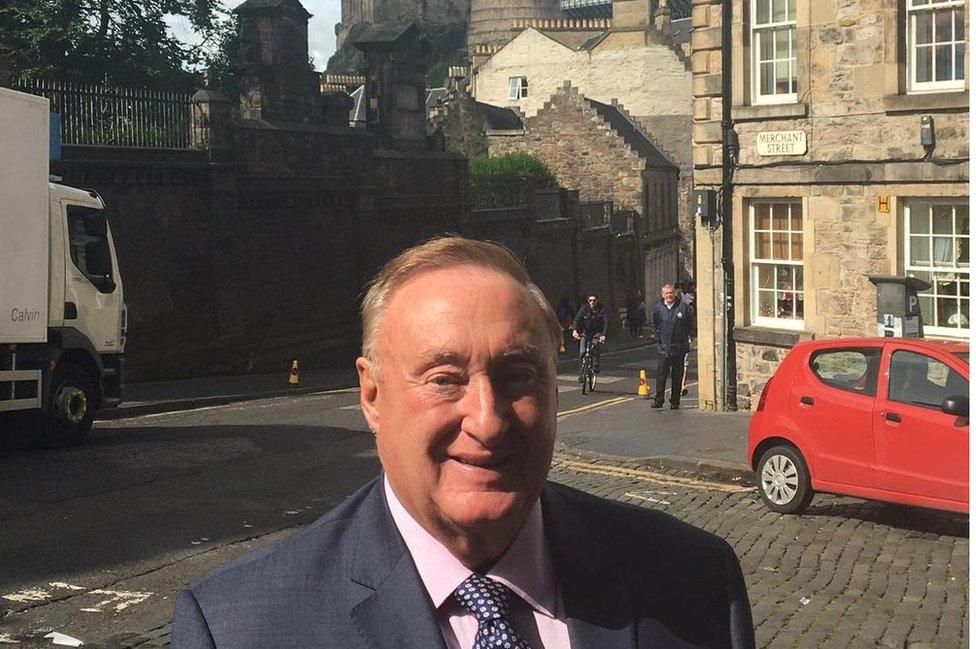
Tom Ponton owns The Oz Bar
Tom Ponton, who owns The Oz Bar in Edinburgh's Candlemaker Row, is calling for a rethink.
He said he would not be able to reopen if drinkers were only allowed to sit at the tables outside his pub.
"The problem with outdoor drinking is the weather and social distancing," he said.
"I have just five tables outside my pub and two would have to be taken away. I couldn't pay for lighting and heating the pub and employing staff for six people.
"It would be much easier to social distance inside my pub as I have 20 tables and could spread them out and it would be much easier to manage them inside as we could keep an eye on them.
"I think we need to open up the premises and see what happens. We can't judge what's going to happen until we open up and do a test run."
He added that he had taken out a £70,000 loan to help him through and predicted that it would take three years for licenced premises to recover, even if they opened fully now.

RISK AT WORK: How exposed is your job?
SCHOOLS: When will children be returning?
EXERCISE: What are the guidelines on getting out?
THE R NUMBER: What it means and why it matters
RECOVERY: How long does it take to get better?
